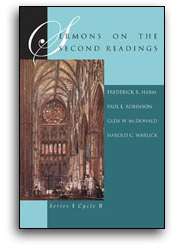SermonStudio
Gifted People
Sermon
Sermons On The Second Readings
For Sundays In Advent, Christmas, And Epiphany
You and I are "gifted" people. We live in a "gifted" country. We gather in a "gifted" institution. Regardless of our relative weaknesses, relative status, and relative talents, we are "gifted" by any reasonable definition of human success. We live in an industrialized nation and our lives are hardly struggling to survive. We enjoy sophisticated imaginations and privileged circumstances. Our talents are many. We do not struggle to survive.


